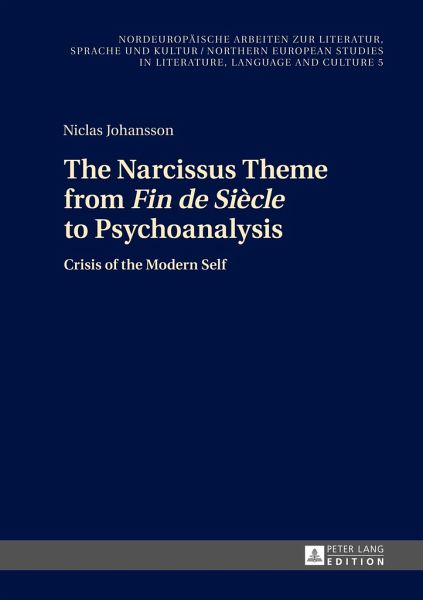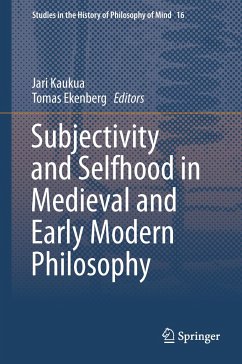
The Narcissus Theme from 'Fin de Siècle' to Psychoanalysis
Crisis of the Modern Self
Herausgegeben: Grub, Frank Thomas
Versandkostenfrei!
Versandfertig in 6-10 Tagen
113,45 €
inkl. MwSt.

PAYBACK Punkte
0 °P sammeln!
The story of Narcissus, who falls in love with his own image in a spring, has fascinated writers and thinkers ever since Ovid first gave poetical form to the myth in his Metamorphoses. This study systematically investigates the elaborations of the theme at the turn of the century around 1900. It argues that a sense of crisis in the modern foundation of selfhood explains the heightened interest in Narcissus during this period.The book investigates three different aspects of the theme: as a symbol of a poetic apotheosis of the self in French Symbolism; as a narrative of a dissolving self in Engl...
The story of Narcissus, who falls in love with his own image in a spring, has fascinated writers and thinkers ever since Ovid first gave poetical form to the myth in his Metamorphoses. This study systematically investigates the elaborations of the theme at the turn of the century around 1900. It argues that a sense of crisis in the modern foundation of selfhood explains the heightened interest in Narcissus during this period.
The book investigates three different aspects of the theme: as a symbol of a poetic apotheosis of the self in French Symbolism; as a narrative of a dissolving self in English, Austrian and French decadent literature; and as the concept of narcissism in sexology and psychoanalysis, where self-love provides an instinctual foundation of the self.
The book investigates three different aspects of the theme: as a symbol of a poetic apotheosis of the self in French Symbolism; as a narrative of a dissolving self in English, Austrian and French decadent literature; and as the concept of narcissism in sexology and psychoanalysis, where self-love provides an instinctual foundation of the self.














